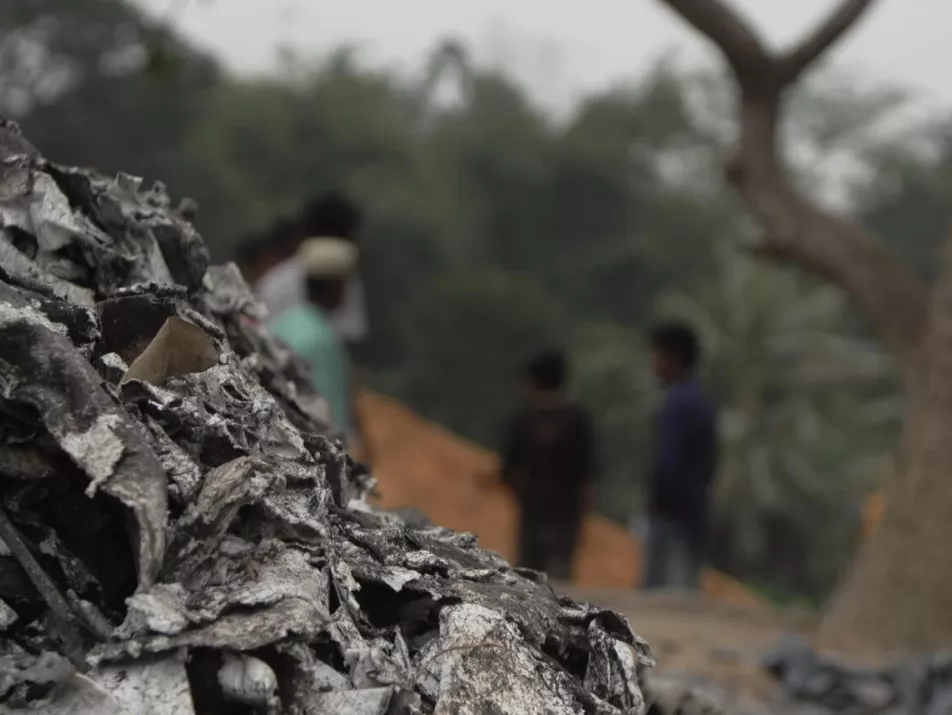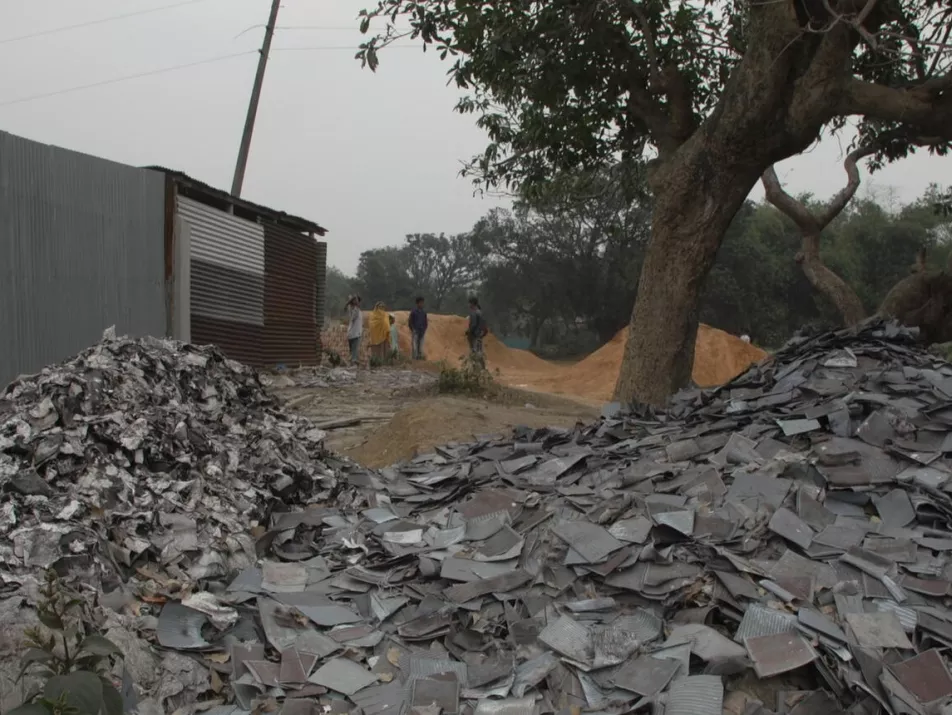UNICEF helps children and communities battle the deadly effects of lead poisoning in Mirzapur
In the serene expanse of Mirzapur, Tangail, a stark tale unfolds – one that mirrors the resilience of a community grappling with the unseen perils of lead poisoning.
Gorai in Mirzapur – an area under high threat of lead poisoning – is home to Mohin, a 14-year-old boy studying at the local high school. Mohin tells us the story of how an informal lead-acid battery recycling factory wreaked havoc in his unassuming community, and how he has been helping fight this silent foe with support from UNICEF and its partners.
Before the battery factory was shut, children used to play in the area regularly, often taking objects like used batteries, pieces of metal and used items home, unaware of the high lead count in them.
Mohin, 14-year-old student
The effects were not instantly felt in the community, but a lot of the children bringing the items home suffered from headaches and respiratory issues, like coughing and shortness of breath.
“Mohin used to be a healthy boy; but after the smoke of the factory spread in the area, he was ill for a long time. We visited the doctor, carried out all sorts of tests, but nothing came up until very recently. We were shocked when we found out his blood had a 7.97 μg/dL lead count,” says his mother, Morsheda. This level is well above the WHO (World Health Organisation) cut-off value of 5 μg/dL for which an intervention will be required.

Informal lead-acid battery recycling facilities like these are a major source of lead poisoning for nearby communities. @UNICEF/UN0581382/ Gregory

@UNICEF/UN0581382/ Gregory
The lead poisoning also had adverse effects on the environment in the community. “I heard from the village elders that after the factory was built, the quality of fruits, vegetables and crops which grew readily in our area started deteriorating. Two cows died due to the toxic fumes,” Mohin says. The older people in the community also faced similar difficulties from respiratory problems.
After I spoke about the ill effects of lead poisoning to my friends, they now understand the significance of this disease. I now know that when we share our knowledge, we can all work together to defeat lead poisoning.
Mohin, 14-year-old student
Mohin's efforts keep bringing change to his community, buoyed by UNICEF's unwavering support in spreading awareness and helping implement crucial interventions. UNICEF is helping the Government of Bangladesh to amplify voices through collaborative initiatives, providing essential resources and educational tools to empower not only individuals but also entire communities in their steadfast fight against lead poisoning.